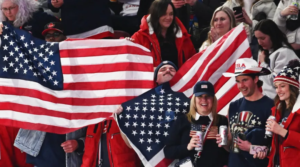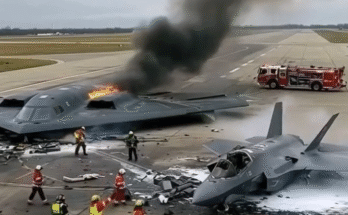The recent Four Nations Face-Off ice hockey tournament in Canada became a focal point of political tensions between the United States and Canada, culminating in Canadian fans booing the U.S. national anthem during multiple games. This behavior has sparked widespread discussions about sportsmanship, nationalism, and the influence of political discourse on international sporting events.
The tournament, featuring teams from the U.S., Canada, Finland, and Sweden, saw heightened emotions, particularly during matches involving the U.S. and Canadian teams. In one notable instance, during a game between the U.S. and Finland at Montreal’s Bell Centre, large sections of the crowd booed “The Star-Spangled Banner” despite public address announcer Michel Lacroix’s request for respect. American forward Matthew Tkachuk, who contributed two goals and an assist in the U.S.’s 6-1 victory over Finland, expressed his disapproval, stating, “I didn’t like it, and that’s all I got.” Head coach Mike Sullivan added, “We just want to play hockey. We want to compete. We want to represent our nation in the right way.”
The booing incidents were not isolated to this game. Fans in various Canadian cities, including Ottawa, Calgary, and Vancouver, have exhibited similar reactions during the U.S. anthem in recent weeks. This surge in unsportsmanlike conduct coincides with escalating political tensions between the two nations. U.S. President Donald Trump’s remarks about potentially making Canada the 51st state and the imposition of tariffs on Canadian goods have fueled nationalistic sentiments and public outcry in Canada.
In a provocative move, Grammy-nominated Canadian singer Chantal Kreviazuk altered the lyrics of “O Canada” during the tournament’s final. She changed the line “in all of us command” to “that only us command,” a direct response to President Trump’s comments about annexing Canada. Kreviazuk shared an image on Instagram showcasing the modified lyrics written on her hand, symbolizing a stance against perceived American overreach.
The political undertones extended beyond the audience and performers. President Trump, though not present at the games, expressed his support for the U.S. team via social media, while Canadian Prime Minister Justin Trudeau attended the final match, showcasing his backing for the Canadian team. The leaders’ involvement further intensified the rivalry, reminiscent of historic Cold War-era sports confrontations.
The tournament concluded with Canada securing a 3-2 overtime victory against the U.S., a win celebrated fervently by Canadian fans and officials alike. Prime Minister Trudeau lauded the team’s performance, viewing it as a testament to Canada’s resilience and unity amid political challenges.
These events have ignited debates about the intersection of sports and politics. While sports traditionally serve as a unifying force transcending political boundaries, the recent incidents highlight how geopolitical tensions can permeate athletic arenas. The booing of national anthems and alterations to patriotic songs reflect deeper societal sentiments and underscore the complex relationship between national identity and international relations.
In response to the booing incidents, discussions have emerged regarding the importance of respect and sportsmanship in international competitions. While political disagreements are inevitable, many argue that sporting events should remain platforms for mutual respect and cultural exchange. The actions of fans and performers during the Four Nations Face-Off serve as a reminder of the powerful role sports play in reflecting and potentially bridging political divides.
As future tournaments approach, organizers and participants may need to consider strategies to foster an environment that emphasizes respect and camaraderie, ensuring that the spirit of the game prevails over political discord.


